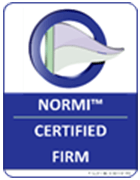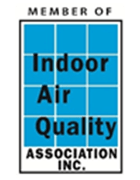So, you are selling a home in the state of Florida and mold or suspected mold was found, now what?
The most important question from here is, who found the mold? Was it a home inspector, a licensed mold assessor, or an industrial hygienist? How many samples were taken and where in the home were, the samples taken from. Another important question is why this area of the home was chosen for sampling. It is important to keep in mind that there is potential for mold to be found in almost every home in Florida. Mold needs a source of food to grow and unfortunately, Florida’s pristine tropical climate provides plenty of food for growth. For this reason, it is not unlikely to find mold inside of a property in our state.
There is nothing that will make a potential buyer run away faster than hearing that the dream home they just put an offer on has mold growth. For this reason, the real estate community has become extremely fearful of this word. Not all molds are toxic, or the dreaded “black” mold. I think many get confused with this term. Most people are referencing Stachybotry’s when they say black mold, not realizing that there are many other molds that are black in color.
When BPS performs testing and mold is detected by the lab there are a few things that help us determine the risk associated with the mold.
- Is it a target mold? Target molds such as Stachybotrys and Chaetomium are zero tolerance molds and as such the counts must be very minimal (0-10 spores)
- Is it a mold associated with water damage such as Aspergillus/Penicillium or Cladosporium?
- Is it a mold that thrives from wet building materials such as Memnoniella or Fusarium?
These results can help us identify potential problem areas in the home that can be addressed and corrected. To often sellers hope that there are no issues found during the home inspection and rely on a home inspector to identify possible mold or air quality issues. Although a home inspector can perform mold testing, this does not make them an expert in mold. For this reason, we believe it is important to hire a licensed mold Assessor to perform the testing.
Most Licensed Mold Assessors can write a protocol for remedial work if needed or at a minimum make recommendations on what to do to correct the issues. In our opinion the best way to assure this does not happen at your closing is to have an air quality/ Mold assessment done before the house goes on the market. This will allow any issues to identified and corrected, more importantly you can have a PRV (post remediation verification) test done that can clear you of liability by confirming mold was not identified in your home anymore. Here at Building Performance Solutions, we have over 30 years of experience in Indoor Air quality and when it comes to identifying poor IAQ experience matters.
www.moldtestingsarsaota.com





